Monday, March 2, 2026 | 9:00 am – 9:30 am
"Nature-Based Solutions in Practice: Translating Regional Challenges into Scalable Solutions for Thriving Cities and Resilient Coasts"
Communities worldwide are grappling with intensifying climate impacts—from flooding and water quality degradation to coastal erosion and water supply challenges. This panel showcases how leaders in Florida are pioneering scalable solutions to create thriving cities and resilient coasts through nature-based infrastructure, cross-disciplinary thinking, and collaboration. Featuring leaders from regional water management, municipal government, community-based organizations, and academia, panelists will demonstrate how nature-based solutions are being implemented at scale—from urban trail systems that double as green infrastructure to community co-produced coastal restoration projects. While grounded in Florida's experiences with sea-level rise, urban flooding, and rapid development, the discussion will extract universal principles for designing with nature in any region. Attendees will learn how to build collaborative partnerships, navigate institutional barriers, and implement low-impact development that delivers both ecological and community benefits. The panel will emphasize practical pathways for transforming the "design with nature" concept from aspiration to reality.
Savanna Barry, Ph.D.
Regional Specialized Extension Agent, University of Florida and Florida Sea Grant
 Dr. Savanna Barry serves as a Regional Specialized Extension Agent III with the University of Florida and Florida Sea Grant. Her work focuses on the intersection of environmental management and applied research in support of community-driven coastal science and practice. She is based at the UF/IFAS Nature Coast Biological Station in Cedar Key, Florida where she works with communities on resilience, restoration, and other needs through a co-production model.
Dr. Savanna Barry serves as a Regional Specialized Extension Agent III with the University of Florida and Florida Sea Grant. Her work focuses on the intersection of environmental management and applied research in support of community-driven coastal science and practice. She is based at the UF/IFAS Nature Coast Biological Station in Cedar Key, Florida where she works with communities on resilience, restoration, and other needs through a co-production model.
Anne Coglianese
Chief Resilience Officer, City of Jacksonville
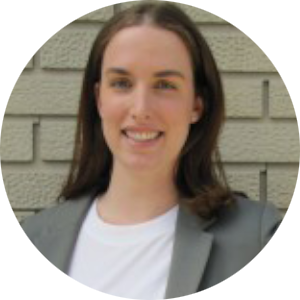 Anne Coglianese is the Chief Resilience Officer for the City of Jacksonville, FL. In this capacity, Anne leads the development of resilience initiatives to ensure Jacksonville can adapt and thrive in the face of acute shocks and chronic stresses brought on by climate change. Prior to joining the City of Jacksonville, Anne served as the Coastal Resilience Manager for the City of New Orleans where she implemented nature-based solutions to sea-level rise and coastal land loss. Anne’s previous experience also includes serving at the White House Council on Environmental Quality, where she participated in the development of climate adaptation and resilience policies to meet the Obama Administration’s resilience goals.
Anne Coglianese is the Chief Resilience Officer for the City of Jacksonville, FL. In this capacity, Anne leads the development of resilience initiatives to ensure Jacksonville can adapt and thrive in the face of acute shocks and chronic stresses brought on by climate change. Prior to joining the City of Jacksonville, Anne served as the Coastal Resilience Manager for the City of New Orleans where she implemented nature-based solutions to sea-level rise and coastal land loss. Anne’s previous experience also includes serving at the White House Council on Environmental Quality, where she participated in the development of climate adaptation and resilience policies to meet the Obama Administration’s resilience goals.
Kay Ehas
Chief Executive Officer, Groundwork Jacksonville
 Kay Ehas is CEO of Groundwork Jacksonville, the City of Jacksonville’s nonprofit partner in creating the 30-mile Emerald Trail and restoring McCoys Creek and Hogans Creek. Since joining Groundwork in 2017, Kay Ehas has been relentless in her pursuit of achieving Jacksonville’s dream of connected trails, parks and creeks that encircle the urban core. Kay initially came to Jacksonville as a Volunteer in Service to America (VISTA) where she worked with public housing tenant associations and a low-income senior citizens group. She earned a master’s degree in communication and graduated with distinction from the University of Florida. Kay earned a Bachelor of Arts degree in social welfare from Kutztown University of Pennsylvania.
Kay Ehas is CEO of Groundwork Jacksonville, the City of Jacksonville’s nonprofit partner in creating the 30-mile Emerald Trail and restoring McCoys Creek and Hogans Creek. Since joining Groundwork in 2017, Kay Ehas has been relentless in her pursuit of achieving Jacksonville’s dream of connected trails, parks and creeks that encircle the urban core. Kay initially came to Jacksonville as a Volunteer in Service to America (VISTA) where she worked with public housing tenant associations and a low-income senior citizens group. She earned a master’s degree in communication and graduated with distinction from the University of Florida. Kay earned a Bachelor of Arts degree in social welfare from Kutztown University of Pennsylvania.
Thomas Frick
Chief Resilience Officer, St. Johns River Water Management District
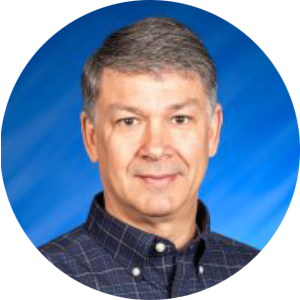 Tom Frick is the St. Johns River Water Management District’s Chief Resilience Officer, where he leads the District’s efforts to integrate resilience into its four core missions of water supply, water quality, flood control and natural systems. He began work with the District in December 2019. Prior to his current role, he served as Assistant Executive Director and Director of the Division of Strategic Planning and Initiatives at the District and prior to joining the District, Tom worked at the Florida Department of Environmental Protection (DEP) and the private sector assessing and restoring Florida’s waters.
Tom Frick is the St. Johns River Water Management District’s Chief Resilience Officer, where he leads the District’s efforts to integrate resilience into its four core missions of water supply, water quality, flood control and natural systems. He began work with the District in December 2019. Prior to his current role, he served as Assistant Executive Director and Director of the Division of Strategic Planning and Initiatives at the District and prior to joining the District, Tom worked at the Florida Department of Environmental Protection (DEP) and the private sector assessing and restoring Florida’s waters.
Monday, March 2, 2026 | 12:00 pm – 12:45 pm
** Lunch buffet opens at 11:30 AM
"Flood Risk Management and Resiliency at SFWMD"
The South Florida Water Management District (SFWMD) is responsible for planning, operating, and maintaining one of the largest and most complex flood control and water management systems in the world. Much of this infrastructure was designed and constructed nearly 70 years ago to address the drainage needs, hydrologic conditions, land use patterns, and community needs of that time.
Today, this system is being asked to perform under significantly different and more challenging conditions, including increased urbanization, sea level rise, more intense rainfall events, higher groundwater levels, and growing public expectations for environmental protection and quality of life. Maintaining and operating aging infrastructure while ensuring reliable flood protection and public safety is an increasingly complex task.
At the same time, communities are looking beyond traditional gray infrastructure solutions and are calling for green infrastructure and nature-based solutions to be embedded into stormwater and flood management strategies. These approaches offer important co-benefits such as improved water quality, ecosystem enhancement, and community amenities. However, real-world challenges remain—particularly in dense urban areas, where large land areas are often required to achieve meaningful flood reduction and water quality benefits, space is limited, and cost efficiency must be achieved.
This presentation highlights:
- The evolving flood risk landscape in South Florida
- Operational and planning challenges, under changed conditions
- Opportunities and constraints for integrating green and nature-based infrastructure into flood resiliency efforts
- The importance of innovation, collaboration, and adaptive planning to meet future flood risk management needs
The goal is to encourage new ways of thinking, spark dialogue around innovative and hybrid solutions, and outline initial steps SFWMD and its partners are taking to adapt flood control planning and management for a changing future.
Carolina Coelho Maran, Ph.D., P.E.
District Resiliency Officer, South Florida Water Management District
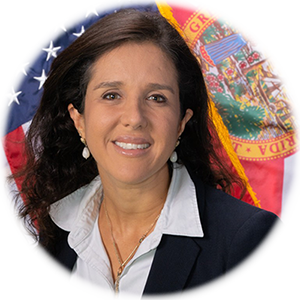
As the Division Director for Flood Control and Water Supply Planning and Chief of District Resiliency at the South Florida Water Management District, Carolina Maran, Ph.D., P.E. provides executive leadership to one of the nation’s most robust flood control, water supply, and resilience planning efforts. She oversees the advancement of critical flood infrastructure projects and comprehensive water supply planning that are essential to South Florida’s economy, quality of life, and environment.
Under her leadership, the District has elevated its resilience and infrastructure adaptation work to protect communities from flooding, ensure long-term water supply, and safeguard critical environmental resources. Through strategic partnerships and collaboration, cutting-edge science and tools, and data-driven solutions,
Dr. Maran has spearheaded initiatives to adapt to extreme events, sea level rise, and other evolving conditions—all of which threaten the region’s infrastructure and economy. Her responsibilities include executive oversight of planning efforts across multiple levels of government, integrating scientific research and risk-based analyses into planning and actionable projects, and developing and implementing robust adaptation strategies. These responsibilities directly support the region’s ability to mitigate flood risks, enhance water management systems, and safeguard water supply and the environment, ensuring that South Florida remains a thriving and sustainable place to live, work, and invest.
Carolina has 25 years of experience working on water and climate resiliency; flood risk management, water supply and water resources planning, management and regulation; hydrologic and hydraulic modeling, decision support systems and GIS; water allocation rules and conflict resolution. Prior to joining SFWMD, Carolina was the Water Manager at Broward County, worked over 10 years as a Water Resources Specialist for the Federal Water Agency in Brazil, and collaborated with international organizations as part of technical consulting teams.
She holds a Ph.D. in Civil and Environmental Engineering – Water Resources from Colorado State University (earned as a Fulbright Scholar) and a Master’s Degree in Water Resources Engineering from Parana Federal University in Brazil. Currently, she serves on the Florida Water and Climate Alliance Steering Committee, Southeast Florida Regional Climate Compact Steering Committee, and on the Board of Directors of South Florida Hydrologic Society. Mom of two incredible boys, Carolina enjoys watching them play baseball and visiting new places with family.
Tuesday, March 3, 2026 | 9:00 am – 9:30 am
"Green Heart Louisville: Early Results"
The Green Heart Project is a large-scale, community-engaged urban greening intervention designed to test the hypothesis that increasing neighborhood tree canopy and supporting greening can reduce air pollution exposures and, in turn, lower cardiovascular disease risk among residents in historically under-resourced urban neighborhoods. Implemented in Louisville, Kentucky, the project combines intensive tree planting with high-resolution air pollution monitoring, remote sensing of greenness, and longitudinal clinical and psychosocial assessments to evaluate impacts on cardiovascular risk factors, systemic inflammation, and overall health. Early findings reveal meaningful reductions in traffic-related air pollutants and significant improvements in biomarkers of inflammation following greening. Complementary ecological research further shows that neighborhood greenness enhances native bird diversity and abundance while air pollution suppresses these benefits, underscoring urban greening as a dual human–ecosystem health intervention. Building on this evidence base, the work is now expanding through the “Greenprint Initiative,” which applies Green Heart science across urban core redevelopment projects using coordinated design, environmental modeling, and shared measurement to improve health, resilience, and economic vitality at the city scale while establishing a replicable national model for evidence-based urban transformation.
Ted Smith, Ph.D.
Professor of Environmental Medicine, University of Louisville Christina Lee Brown Envirome Institute
 Dr. Smith co-founded the Envirome Institute in 2018 and serves as a professor in the division of environmental medicine. He has a passion for community-engaged research translation and the role of technologies to address public health challenges. In his administrative capacity, he serves as interim associate dean for research in the School of Public Health and Information Sciences. He directs a portfolio of environmental monitoring studies for the Green Heart clinical trial. Since June 2020, he has been a leader and partner in wastewater monitoring for Louisville Metro Public Health and Wellness, and led the application of this technology for the Kentucky Dept of Corrections during the COVID-19 pandemic. Dr. Smith was previously the Chief of Civic Innovation for the City of Louisville, KY where he created the largest real-time asthma monitoring project, AIRLouisville. Since 2019, he has served on the Board of the Citizen Science Association. Ted received his B.S. in Biology and Psychology from Allegheny College, his M.S. and PhD in Experimental Psychology from Miami University and completed his post-doctoral studies at the Massachusetts Institute of Technology.
Dr. Smith co-founded the Envirome Institute in 2018 and serves as a professor in the division of environmental medicine. He has a passion for community-engaged research translation and the role of technologies to address public health challenges. In his administrative capacity, he serves as interim associate dean for research in the School of Public Health and Information Sciences. He directs a portfolio of environmental monitoring studies for the Green Heart clinical trial. Since June 2020, he has been a leader and partner in wastewater monitoring for Louisville Metro Public Health and Wellness, and led the application of this technology for the Kentucky Dept of Corrections during the COVID-19 pandemic. Dr. Smith was previously the Chief of Civic Innovation for the City of Louisville, KY where he created the largest real-time asthma monitoring project, AIRLouisville. Since 2019, he has served on the Board of the Citizen Science Association. Ted received his B.S. in Biology and Psychology from Allegheny College, his M.S. and PhD in Experimental Psychology from Miami University and completed his post-doctoral studies at the Massachusetts Institute of Technology.
Tuesday, March 3, 2026 | 12:00 pm – 12:45 pm
** Lunch buffet opens at 11:30 AM
"The ROI of Rain Gardens: Capturing the Full Value of Nature-Based Solutions"
The benefits of green infrastructure and other nature-based solutions extend far beyond stormwater management. When thoughtfully designed, these projects can deliver a range of financial, social, and environmental outcomes, from improved public health and enhanced biodiversity to groundwater recharge and neighborhood revitalization. While these benefits are widely recognized, they can be difficult to quantify and value, and are often missing from traditional engineering and financial decision frameworks.
This keynote presents practical, defensible approaches for quantifying the multiple benefits of nature based solutions and translating them into metrics that matter for engineers, planners, and financial decision makers. Drawing on years of research, real world case studies, and emerging valuation tools, Ms. Clements will illustrate how capturing the full range of benefits can strengthen business cases, unlock new financing pathways, inform cost allocation decisions, and build broader community and political support. Participants will leave with a clear understanding of how to integrate these benefits into project design, capital planning, and long term infrastructure strategy, and why doing so is essential for creating resilient, equitable, and financially sustainable communities.
Janet Clements
CEO & Owner, One Water Econ
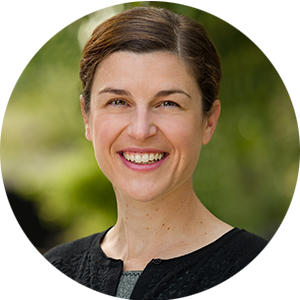 Janet Clements has 25 years of experience in water and natural resources economics, planning, and consulting. She conducts benefit-cost, triple-bottom line, and economic impact analyses of water-related policies and programs. Her areas of expertise include integrated water resource management, natural infrastructure, environmental markets and incentives, and affordability of water and wastewater services. She also works on climate adaptation and has extensive background in western water issues and demand management. Ms. Clements has conducted several studies for national water organizations and is currently a member of EPA’s Environmental Finance Advisory Board. She has a B.S. in Sustainable Resource Management from The Ohio State University and an M.S. in Agricultural and Natural Resource Economics from Colorado State University.
Janet Clements has 25 years of experience in water and natural resources economics, planning, and consulting. She conducts benefit-cost, triple-bottom line, and economic impact analyses of water-related policies and programs. Her areas of expertise include integrated water resource management, natural infrastructure, environmental markets and incentives, and affordability of water and wastewater services. She also works on climate adaptation and has extensive background in western water issues and demand management. Ms. Clements has conducted several studies for national water organizations and is currently a member of EPA’s Environmental Finance Advisory Board. She has a B.S. in Sustainable Resource Management from The Ohio State University and an M.S. in Agricultural and Natural Resource Economics from Colorado State University.
Wednesday, March 4, 2026 | 9:00 am – 9:30 am
"Panel Discussion: The Minnesota Story: 30 Years of Livin’ LID"
Minnesota's Low Impact Development (LID) story began over 30 years ago when protecting water resources in the "Land of 10,000 Lakes" became a priority. Inspired by efforts in Chesapeake Bay, Minnesota pioneered an approach built on four pillars: policy and practice, funding, science, and research—all aimed at protecting our waters and removing them from the 303(d) Impaired Waters List. It's an inspiring journey that will be shared by three storytellers who have lived it: Jay Michels, Andy Erickson, and John Chapman look forward to sharing Minnesota's LID story and inspiring others to take action.
Speakers:
Jay Michels, CPESC, NGICP/IGICP
 Senior Project Manager, Emmons & Olivier Resources, Inc.
Senior Project Manager, Emmons & Olivier Resources, Inc.
Jay Michels has been involved from the very start of the Minnesota Story, developing policy and practice, building, and sometimes failing in its implementation. Always learning from those mistakes and teaching others.
John Chapman, Ph.D., P.E. (MN, CO)
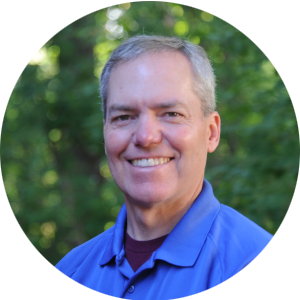 Associate Research Professor and Program Director, Erosion and Stormwater Management Certification Program at the University of Minnesota - Bioproducts and Biosystems Engineering Department
Associate Research Professor and Program Director, Erosion and Stormwater Management Certification Program at the University of Minnesota - Bioproducts and Biosystems Engineering Department
John Chapman, through the University of Minnesota Extension has been a critical link in taking practice to successful completion through the development of tremendously successful education and certification programs that cover the gambit from design to construction to operations and maintenance.
Andy Erickson, Ph.D., P.E.
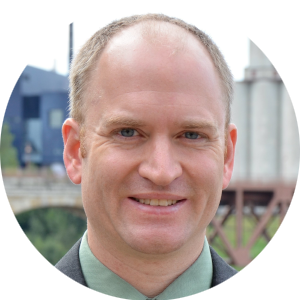 Research Manager, St. Anthony Falls Laboratory, College of Science & Engineering, at the University of Minnesota
Research Manager, St. Anthony Falls Laboratory, College of Science & Engineering, at the University of Minnesota
Andy Erickson is one of the leading researchers and educators on LID and has been a key leader and spokesman for sound design, implementation and operations a maintenance through his efforts at the University of Minnesota St. Anthony Falls Laboratory (SAFL).
Wednesday, March 4, 2026 | 12:00 pm – 12:45 pm
** Lunch buffet opens at 11:30 AM
"Beyond the Rain Garden: Building Resilient Urban Water Systems"
Low impact development has matured from experimental practice to essential urban infrastructure over the past three decades. We will revisit the origins and go through the evolution of green stormwater management from early demonstration projects to today's integrated, climate-adaptive systems. The discussion highlights how our past research and practice have shaped where the next-generation of stormwater technologies and applications will go, including intelligent monitoring systems, advanced treatment media for emerging contaminants, and systems thinking approaches that transform stormwater from waste to resource. As communities confront intensifying storms and prolonged droughts, we will think about how digital integration, nature-based solutions, and interdisciplinary collaboration are reshaping urban water management. The path forward requires moving beyond individual practices toward watershed-scale, social-ecological-technical systems that enhance urban resilience, inclusive systems thinking, and livability in an uncertain climate future.
Bridget Wadzuk, Ph.D., M.ASCE
Edward A. Daylor Chair Professor of Civil and Environmental Engineering and Director of Villanova Center for Resilient Water Systems
 Dr. Bridget Wadzuk has been in the field of stormwater management for over twenty years, with a focus on urban, sustainable, and resilient stormwater systems taking a systems approach and linking flooding and environmental justice, integration of big data and machine learning in water resources systems, real-time control, and integrated temporal and spatial scales. She is the Director of the Villanova Center for Resilient Water Systems and the Director of the Sustainable Engineering Program at Villanova University. As a researcher, her goal has been to provide sound data and reasoning to enable data-driven recommendations and practices for the engineering community. Her research has been inspired by the users, the stormwater community, on the challenges they encounter and the applications they work in. Her research on green stormwater infrastructure, including constructed wetlands, bioretention, green roofs and infiltration trenches looks at how these systems have been developed and improving sustainability and resilience while optimizing design and performance. Bridget received his B.S. in Civil and Environmental Engineering from Villanova University and her M.S. and Ph.D. in Water Resources Engineering from The University of Texas at Austin.
Dr. Bridget Wadzuk has been in the field of stormwater management for over twenty years, with a focus on urban, sustainable, and resilient stormwater systems taking a systems approach and linking flooding and environmental justice, integration of big data and machine learning in water resources systems, real-time control, and integrated temporal and spatial scales. She is the Director of the Villanova Center for Resilient Water Systems and the Director of the Sustainable Engineering Program at Villanova University. As a researcher, her goal has been to provide sound data and reasoning to enable data-driven recommendations and practices for the engineering community. Her research has been inspired by the users, the stormwater community, on the challenges they encounter and the applications they work in. Her research on green stormwater infrastructure, including constructed wetlands, bioretention, green roofs and infiltration trenches looks at how these systems have been developed and improving sustainability and resilience while optimizing design and performance. Bridget received his B.S. in Civil and Environmental Engineering from Villanova University and her M.S. and Ph.D. in Water Resources Engineering from The University of Texas at Austin.
